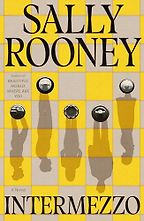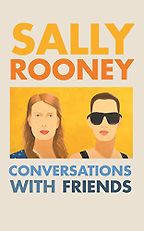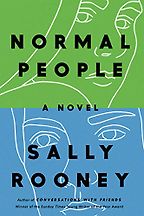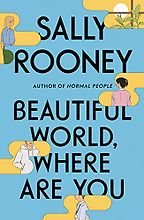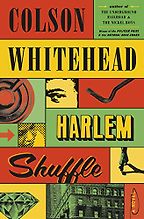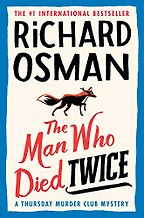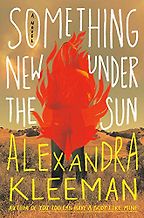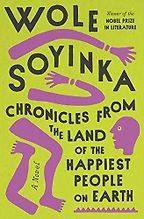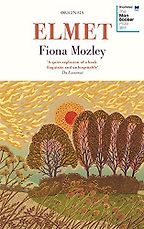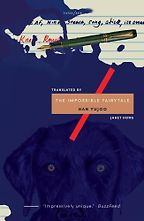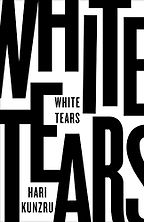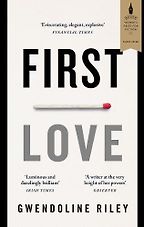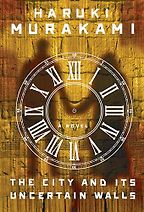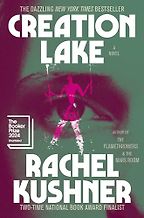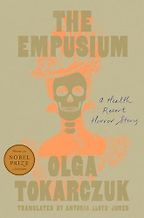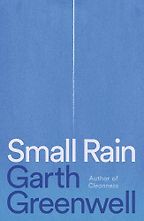
Books by Sally Rooney
Sally Rooney is an Irish novelist who took the literary scene by storm with her debut novel, Conversations with Friends. Her second novel, Normal People, had massive international success thanks to the phenomenon that was the subsequent BBC/Hulu television adaptation starring Paul Mescal and Daisy Edgar-Jones. Below, we’ve listed her books in order of publication. Rooney’s latest novel, Intermezzo (2024, pictured top) is now out. (New York Times critic Dwight Garner: “This book charmed and moved me, and, over the two or three days I spent with it, made my burdens feel lighter”)
“Every Rooney book is a major publishing event, and this latest offering—which centres on the fraught relationship between two Irish brothers—has received rave reviews almost across the board. The Guardian said it was ‘perfect – truly wonderful – a tender, funny page-turner about the derangements of grief, and Rooney’s richest treatment yet of messy romantic entanglements.'” Read more...
Cal Flyn, Five Books Editor
“I loved how she used the blueprint of the love triangle – two young gay women get emotionally, and sexually, embroiled with an older, more urbane couple in Dublin – in a way that made it seem fresh and unexpected. Nothing feels clichéd or familiar. She is so strong on dialogue and there is something both youthful and deeply mature in her writing. It’s really exhilarating to read a debut that’s so good.” Read more...
If you’ve somehow made it this far without reading Rooney’s previous novel – her rollicking, quick-smart debut Conversations With Friends – then we suggest you correct this immediately. It follows performance poets and Trinity College students Frances and Bobbi as they fall in with (and fall for) an older married couple, Nick and Melissa. It’s full of snappy dialogue and searching questions about what love, jealousy and infidelity might mean, in a non-monogamous, non-heteronormative world. Full of snappy dialogue and earnest debate, it’s as much a portrayal of obsessive friendship as a two-headed love story, and it cleverly subverts many of the tropes of the romantic comedy without losing their appeal. (Also available – and highly recommended – is Rooney’s short Mr Salary, shortlisted for The Sunday Times EFG Short Story Award and published as a mini paperback by Faber.)
From our article Books like Normal People
Normal People: A Novel
by Sally Rooney
Normal People follows two Irish teenagers: Marianne, a bookish outsider, and Connell, who is popular and sporty, as they leave their hometown to attend Trinity College, Dublin, where they find their social standings flipped. Marianne, who comes from a wealthy background, thrives in the new environment, while Connell struggles to find a toehold. But even as they drift apart, a combination of magnetic attraction and shared history draws them back together. Normal People makes for compulsive reading, and shares Conversations with Friends' snappy dialogue. But this is a much darker book, which dwells on how dysfunctional and selfish behaviour can reverberate through others' lives. It's most powerful when it dwells upon how we can – with others' help – begin to piece ourselves back together after trauma or tragedy.
“Beautiful World, Where Are You…follows two erudite young Dubliners navigating their late twenties, one a fabulously successful novelist and the other an editorial assistant at a literary magazine. Rooney’s writing, being full of intellectual debate, humour and emotionally fraught sex, has previously met rapturous critical and popular responses.” Read more...
Cal Flyn, Five Books Editor
Interviews where books by Sally Rooney were recommended
Notable Novels of Fall 2021, recommended by Cal Flyn
Five Books deputy editor Cal Flyn offers a round-up of the notable novels that need to be on your literary radar in Fall 2021, including the hotly anticipated new book from Sally Rooney—set to dominate bestseller lists in the coming weeks—as well as eagerly awaited follow-ups from Richard Osman and Elizabeth Strout, and a return to more traditional fiction from Karl Ove Knausgård.
The Best Novels of 2017, selected by Arifa Akbar
Has 2017 been a strong year for novels? Yes, says Arifa Akbar, Editor of new literary magazine Boundless – especially if you like your novels fresh and raw
Notable Novels of Fall 2024, recommended by Cal Flyn
Our deputy editor Cal Flyn compiles her autumnal literary fiction highlights: five freshly released and hotly anticipated new novels that you should have on your reading list in the fall of 2024: from Sally Rooney to Garth Greenwell.
